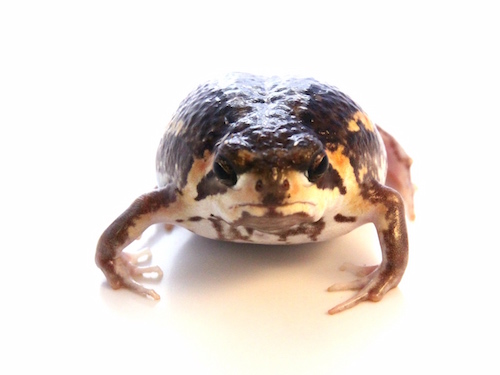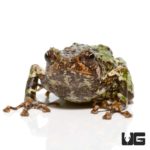Rain Frog for Sale: Open the Charm of Nature with Your Own Amphibian Companion!
Rain Frog for Sale: Open the Charm of Nature with Your Own Amphibian Companion!
Blog Article
Common Health And Wellness Issues in Reptiles: Symptoms and Solutions
In the complex globe of reptile treatment, recognizing the common health and wellness issues that may influence these special creatures is critical in guaranteeing their wellness. Whether it's grappling with parasitic infestations, browsing dehydration concerns, or resolving skin conditions that manifest in refined ways, being attuned to the signs and furnished with the expertise of effective services is vital for any reptile owner.
Respiratory System Infections
Breathing infections in reptiles can substantially affect their general wellness and call for prompt focus from skilled vets. These infections are frequently brought on by fungis, bacteria, or infections and can manifest through symptoms such as wheezing, nasal discharge, open-mouth breathing, and sleepiness. In reptiles, respiratory infections can be especially testing to identify and treat as a result of their one-of-a-kind makeup and physiology. Vets commonly depend on a combination of checkups, analysis imaging, and research laboratory examinations to accurately determine the underlying source of the infection.
Treatment for respiratory infections in reptiles generally entails a mix of helpful treatment, such as maintaining appropriate moisture degrees and temperature slopes in the unit, in addition to targeted drug to attend to the details microorganism in charge of the infection. It is essential for reptile owners to monitor their pets closely for any indications of breathing distress and look for vet care at the earliest sign of an issue. With timely intervention and proper therapy, lots of reptiles can recuperate completely from breathing infections and return to normal activities.

Metabolic Bone Illness
What factors add to the advancement of Metabolic Bone Condition in reptiles?
Metabolic Bone Illness (MBD) in reptiles is largely triggered by an absence of proper calcium, phosphorus, and vitamin D3 levels in their diet regimen. When reptiles do not obtain adequate calcium, either through their food or appropriate UVB exposure for vitamin D3 synthesis, they go to a high danger of developing MBD. Reptiles with diet plans low in calcium or imbalanced calcium to phosphorus proportions are specifically prone. Additionally, poor exposure to UVB light stops reptiles from synthesizing vitamin D3, which is vital for calcium absorption and bone health.
Not enough moisture degrees can also impact a reptile's capability to metabolize calcium efficiently. Normal vet examinations, proper husbandry practices, and a balanced diet plan are essential to stop Metabolic Bone Disease in reptiles.
Parasitic Problems
Parasitic problems present a substantial health threat to reptiles, affecting their overall well-being and calling for prompt veterinary focus. Reptiles can be affected by different parasites, consisting of termites, ticks, internal worms, and protozoa. These bloodsuckers can cause a series of symptoms, such as weight loss, lethargy, skin inflammation, diarrhea, and even death if left without treatment.
One common parasite located in reptiles is the mite, which can create skin anemia, inflammation, and stress. Ticks are another external parasite that can transfer conditions and cause discomfort to the reptile. Interior bloodsuckers like worms and protozoa can result in digestion issues, lack of nutrition, and compromise the reptile's immune system.
To detect a parasitical problem, a vet might do fecal tests, skin scrapings, or blood tests. Treatment commonly entails deworming drugs, antiparasitic bathrooms, or in severe cases, hospitalization. Preventative steps such as regular vet exams, appropriate hygiene, and quarantine procedures for new reptiles can assist minimize the threat of parasitical infestations and make sure the wellness of reptile family pets.
Dehydration and Hydration Issues
Dehydration in reptiles can significantly affect their health and health, demanding timely intervention and proper hydration monitoring. If left untreated, dehydration can lead to significant health issues and also be deadly to the official statement reptile.
To stop dehydration, reptile owners ought to make certain that their pet dogs have accessibility to clean water in any way times. The water meal must be huge sufficient for the reptile to take in if needed, specifically for species that take in water via their skin. Furthermore, maintaining appropriate moisture levels in the reptile's unit and providing regular baths can aid prevent dehydration.
In cases of dehydration, it is crucial to seek vet care promptly. A veterinarian might carry out fluids either orally or via injections to rehydrate the reptile. It is important to address the underlying cause of dehydration to avoid reappearance and ensure the reptile's total wellness.
Skin Disorders

Final Thought

Breathing infections in reptiles can substantially influence their overall health and call for punctual focus from experienced vets (rain frog for sale). Preventative steps such as regular veterinary examinations, correct hygiene, and quarantine procedures for brand-new reptiles can help reduce the threat of parasitic problems and make certain the well-being of reptile pets
If left neglected, dehydration can lead to significant health problems and also be fatal to the reptile.
Frequently evaluating your reptile for any type of adjustments in skin color, structure, or appearance can help in early discovery and treatment of skin ailments, promoting the general health and wellness and wellness of your scaly buddy. - rain frog for special info sale
In conclusion, reptiles are vulnerable to numerous health and wellness issues such as breathing infections, metabolic bone disease, parasitic infestations, dehydration, and skin disorders.
Report this page